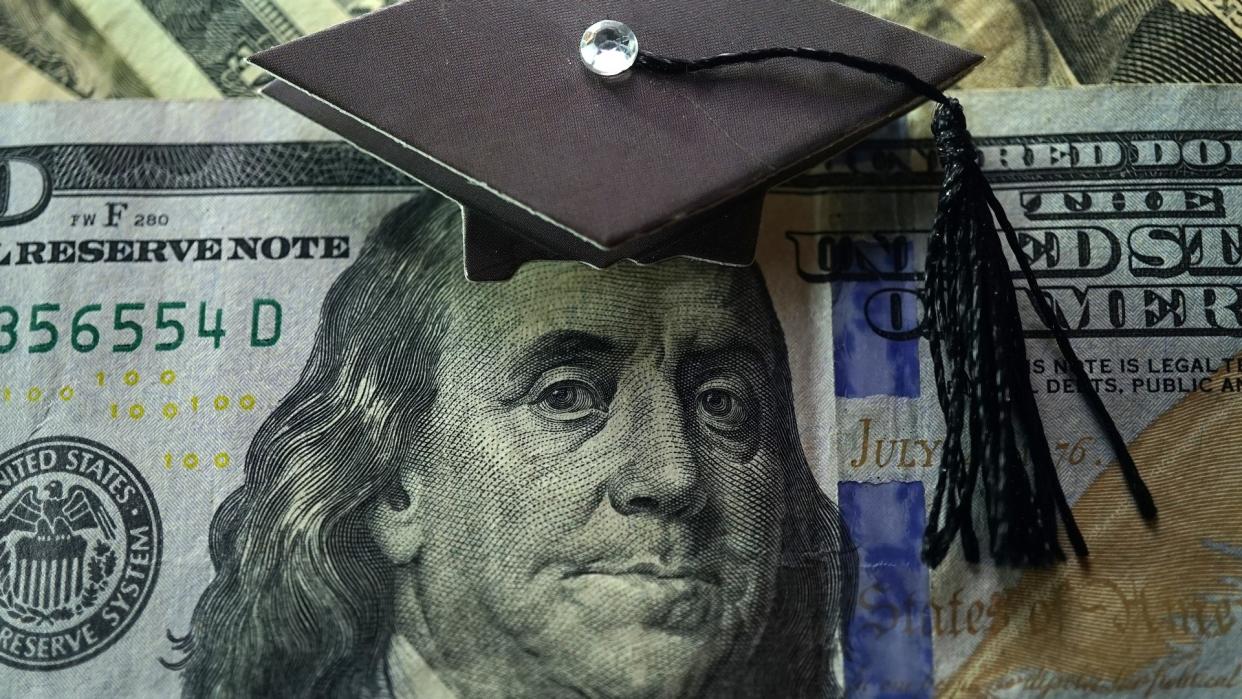Student Loan Debt-Relief Scammer Ordered to Pay Back $822K – How to Avoid Being Swindled

The Federal Trade Commission said it is sending thousands of checks totaling more than $822,000 to borrowers who lost money in a student loan debt-relief scam that operated under the name Student Advocates.
Learn: How Can I Get My Student Loan Forgiven? PSLF Waivers and More
Save More: Back-to-School Tips To Help You Cut Costs
In an Aug. 18 announcement, the FTC said it will send a total of 14,521 checks to borrowers victimized by the scheme. In a complaint filed three years ago, the FTC alleged that the operators of Student Advocates, assisted by Equitable Acceptance Corporation, charged illegal upfront fees that they falsely claimed went toward consumers’ student loans. The defendants then steered customers into high-interest loans to pay the fees off.
The FTC also alleged that the defendants made false promises that their services would permanently lower or eliminate consumers’ student loan payments and debt balances. However, none of the money collected by the defendants was paid toward consumers’ student loans.
Student Advocates has since been banned from providing debt relief services, prohibited from collecting further payments from consumers who purchased their debt relief services and required to pay additional monetary relief.
Borrowers who lost money to Student Advocates and have not been contacted by the FTC, or have questions about the refund, can call the refund administrator, JND Legal Administration, at 877-540-0989. If you receive a check, you should cash it within 90 days.
Scams involving student loans have become a much bigger problem in recent years as the nation’s student debt balance balloons. It has only grown worse amid an overall rise in fraud since the beginning of the COVID-19 pandemic.
More than 44 million Americans have student debt, contributing to a total outstanding loan balance of more than $1.7 trillion, CNBC reported. The average student loan balance has grown to about $30,000 from only $10,000 30 years ago. Some borrowers are saddled with $100,000 in debt or more.
These high balances have contributed to a rise in fraud involving debt relief or forgiveness scams. In many cases, scammers request upfront fees totaling thousands of dollars — something that’s illegal to begin with.
“The Credit Repair Organizations Act of 1996 bans charging upfront fees for credit repair, such as student loan forgiveness, student loan consolidation and switching repayment plans,” higher-education expert Mark Kantrowitz told CNBC.
There are several steps you can take to avoid being the victim of student loan scams. First and foremost, never respond to requests to share your federal student ID except from your loan servicer or the government. The same holds true when it comes to sharing other personal information such as your Social Security number and bank account numbers.
You should also be wary of offers to provide immediate cancellation of your student debt. As Kantrowitz pointed out, legitimate programs that offer loan relief or forgiveness can take years to process, so offers of immediate relief are probably scams.
See: Student Loan Forgiveness Scams on the Rise — Avoid Being a Victim of Fraud
Find: These 10 States Have the Least Affordable Private Schools
If you do suspect you’ve been scammed, contact your bank or credit card company immediately to close the accounts or stop payments. You should also file a report with the FTC or call your state attorney general office.
More From GOBankingRates
Check Out Readers' Favorite Small Businesses in Our 2022 Small Business Spotlight
This Credit Score Mistake Could Be Costing Millions Of Americans
Here's How Much Cash You Need Stashed If a National Emergency Happens
This article originally appeared on GOBankingRates.com: Student Loan Debt-Relief Scammer Ordered to Pay Back $822K – How to Avoid Being Swindled
